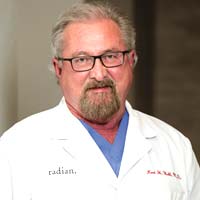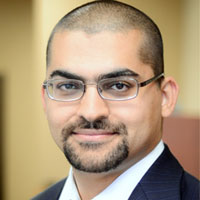Great Hair Transplants Expands to Tennessee, Launches MaxHarvest Preceptorship Program
Great Hair Transplants, a hair transplant clinic led by Dr. Brett Bolton, announced it is expanding the brand to Brentwood, Tennessee. The hair transplant clinic is in the process of relocating its corporate staff as part of the expansion.
Great Hair Transplants offers a state-of-the-art facility with leading-edge surgical rooms equipped with 60 inch TV screens and a surround sound amphitheater effect. There are separate waiting rooms equipped with multimedia entertainment. The facility also includes a fully equipped pre-operative room for the doctor to perform surgical design and planning with the patient. Additionally there is a post-operative room for patients to relax after the procedure while the medical staff covers all post-op care instructions.
Great Hair Transplants has two fully staffed state of the art surgery centers: one located at its corporate headquarters in Brentwood and the other at Fort Lauderdale, FL.
In line with the growth and success of the hair transplant business, Dr. Brett Bolton and Great Hair Transplants also launched a preceptorship program for affiliate surgeons who have gained expertise at MaxHarvest hair transplant procedure.
Through this program, Great Hair Transplants offers a preceptorship opportunity for experienced doctors interested in offering the MaxHarvest technique at their practice. These surgeons will become affiliate partners of Great Hair Transplants. The program benefits patients as they can find a MaxHarvest technique in their locality or nearby area.
The MaxHarvest procedure has been gaining worldwide acclaim the past few years thanks to its ability to give maximum hair density to patients suffering from hair loss, according to Great Hair Transplants officials.
“The goal is to allow Dr. Bolton to share his innovative techniques with some colleagues in the industry,” stated Steve Cook, chief operating officer at Great Hair Transplants. “The results are so incredible it is now the time to expand.”
Great Hair Transplants has also designed a secondary brand focusing on a pricing model to help people with moderate income get their hair transplanted at an affordable cost. The new brand will create more exposure and allow patients on a budget to benefit from Dr. Bolton’s techniques. The website for the brand will be Hair Transplant Pricing.
Hairfear
Frequently asked questions about hair transplant procedures
How much does a hair transplant cost?
Hair transplants can vary in price based off of the area in the world that you are interested in getting a hair transplant as well as the size of the area where you may need a hair transplant. Experienced doctors in the United States will often charge some of the highest prices for a hair transplant worldwide and this is why so many travelers make the move to other parts the world like Turkey, India, Thailand, Mexico...etc for their hair transplants.
Will a hair transplant hurt?
Although hair transplants may look like a particularly
unpleasant or painful experience is actually very little discomfort involved
with the surgery itself. Hair transplants are always done under an anesthetic so there's absolutely zero pain during the treatment itself. Many people actually relate the process as being very similar to going to the dentist for filling or root canal. Mild pain can persist over the course of postop treatment but he generally just resumes for a few days.
Who can deliver the best surgery?
It's usually best to consider working with surgeons who have and IAHRS certification or international alliance of hair restoration surgeons recognition. IAHRS can often deliver recommendations for the best surgeons in each particular area.
Is this scarring noticeable?
Any type of hair transplant will require the use of incisions throughout the scalp. There can also sometimes be a small scar from the donor area towards the back of the scalp. Asking to look at photos of the surgeon's previous work will help you to see roughly how bad the scarring could be. In most cases an experienced professional can limit the look of scarring and noticeable marks from the surgery.
How long does it take for the hair to grow?
In most cases hair growth will start within eight months and you can start to see a full effect from the hair transplant after a full year. The initial signs of growth can usually start between 3 to 4 months after the surgery.
Are the results permanent?
The hair follicles that are transplanted are generally the ones which are genetically resistant against the symptoms of baldness. As long as you receive hair loss treatment later in your life after the symptoms of balding have started to subside, you can have a better chance at permanent results.
While everyone know you've had surgery?
If you want to limit the chance that people may find out about your surgery it's important to give at least three weeks of healing as the surgical area will be affected and red just after surgery. After around a month of healing it can look far less noticeable. You could consider wearing a hat while time passes or opting for some extra time off if possible.
How long should I rest after surgery?
It's recommended to rest for at least a few days after surgery so that your body can recover. Trenton to over exert yourself and limit sexual activity, running in the gym for around 10 days after surgery.
Is it possible to lose more hair as a result of surgery?
There is always a chance of shock loss which happens when the hair is weak and miniaturizing after the surgery. As long as the surgeon is choosing the correct hair follicles and performing the surgery well it's possible to minimize the chance of this happening however.
Will I need another hair transplant?
The need for another transplant really depends on the individual. With a solid foundation surgery and working to potentially bolster results with drug therapy, you can improve the stability of the hair that was transplanted as well as prevent further loss. Getting a hair transplant early
on in your 20s or early on in life could lead to needing long-term transplants as hair loss can be progressive.







